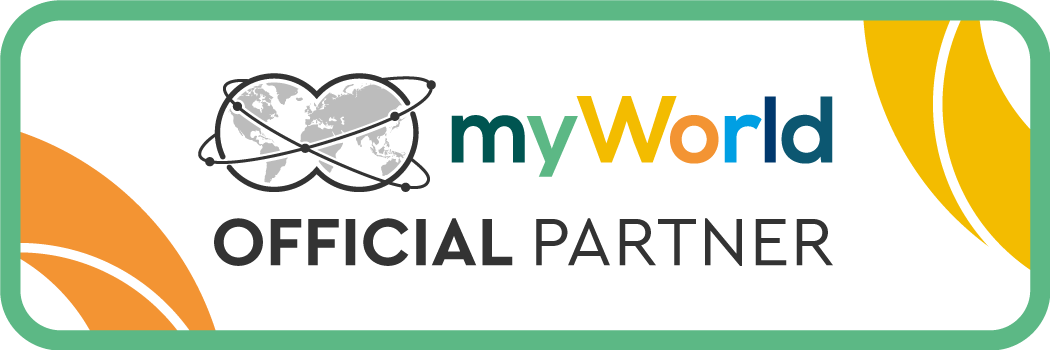Have you ever looked back at your childhood or teenage relationship with your mother and wondered how it affects how you show up in life today? Maybe there were times in the past when you didn’t feel fully seen, loved, or supported, and those feelings seem to echo in your present life—shaping how you see yourself and your relationships. Maybe you've even gone to therapy and realized the deep impact of these wounds but you've still had trouble letting them go and loving and accepting yourself due to your past.
If this resonates, you might be dealing with what’s known as the mother wound. Let’s explore what it is, how it shows up in your feelings and behaviors, and how EFT Tapping can help you heal both the past and its impact on your life now.
Overview of the Topic: Explaining the Concept of the Mother Wound and Relevance
Many people say motherhood is the hardest job in the world. And, let's be honest, since kids don't come with instruction manuals and your parents are also growing up as you are, there are lots of mistakes to be made. Childhood is part of our development and important for building self esteem, showing us what love is, how we should act to receive love and have a sense of self-worth. Unfortunately, many childhood experiences can leave us with self-esteem issues and belief wounds

The Mother Wound affects both men and women differently and can rear its head in our professional, social, and personal lives. It can even affect our boundaries at work, who we choose as a romantic partner, and even how much money we think we deserve in life.
Let's dive into the concept of the mother wound and why it's so important to our personal growth journey. The term "mother wound" may be unfamiliar to some, but it carries significant weight in our emotional landscape.
It encompasses the pain and scars we carry from our relationship with our mothers, often stemming from unmet needs, emotional neglect, or even outright abuse.
Understanding the mother wound is key because it sheds light on the roots of our emotional struggles. These wounds have a profound impact on our self-esteem, shaping how we perceive ourselves and our worth.
They can manifest as feelings of unworthiness, insecurity, or a persistent sense of not being "enough."
"I’m realizing for the first time how exhausting it is to constantly curate my natural tendencies, responses, thoughts, and actions into whatever version Mom would like most.” - Jennette McCurdy
By acknowledging and addressing these wounds, we open the door to healing and growth. It's not about blaming our mothers or dwelling on the past; it's about reclaiming our power and rewriting our narratives. Healing the mother wound allows us to cultivate healthier relationships, both with ourselves and others.
Moreover, healing the consequential aspects of the mother wound is an act of self-love and self-care. It's about honoring our inner child and giving ourselves the compassion and validation we may have missed out on in childhood. As we heal, we reclaim our sense of worthiness and embrace our inherent value.
Ultimately, it's about breaking free from old patterns and beliefs that no longer serve us, and stepping into our true authenticity and potential. I want to talk about how EFT tapping can be used as a powerful tool to heal some of these belief wounds.
Why Emotionally Heal Your Mother Wound?
When it comes to loving and accepting yourself and your place in the world around you, emotional healing isn’t just about finding temporary relief—it’s about making real, lasting changes that improve your overall well-being. When we work through deep wounds, like the mother wound, we’re not just healing and freeing ourselves of the past; we’re making space for more happiness, confidence, and energy in our lives.

If we leave them unchecked, they can act like invisible walls that stop us from fully showing up in the world. The mother wound, for example, can shape how we see ourselves, our worth, and our ability to connect with others.
For example, do you need your mother's approval for everything you do in order to feel good enough?
If you're embarking on a new challenge and your mother thinks it's a bad idea, do you second guess yourself?
If you're happy about a new job but your mom thinks it's a good idea, do you feel bad about yourself like you're worthless?
Or maybe her unsolicited opinion takes you back to childhood when you just wanted to be loved and you got scolded instead or told you didn't do it well enough?
When we face these emotional scars, we can start breaking down those walls. This opens us up to new opportunities and allows us to step into our true potential. This is how we start embracing the abundance and love that life has waiting for us.
Healing is also a powerful act of self-love. It’s about taking responsibility for our own journey, reclaiming our power, and affirming that we deserve to feel good. When we prioritize our healing, we’re telling ourselves that we matter—that our mental, emotional, and spiritual health matters.
At the end of the day, emotional healing is a courageous journey. It’s about letting go of the past, embracing who we really are, and stepping into a future filled with joy, purpose, and possibility. Together, we’ve got the strength to create the life we truly deserve.
What is the Mother Wound and Where Does it Come From?
So, what exactly is the mother wound, and where does it come from? Simply put, the mother wound is an emotional, mental, or spiritual injury that stems from our relationship with our mother, whether it was intentional or not. It can show up in all sorts of ways—affecting how we feel about ourselves, how we connect with others, and even how we handle life’s challenges.
This wound usually starts when we were kids—when our basic needs for love, safety, or support weren’t fully met. Maybe we experienced neglect, abandonment, or emotional unavailability from our mother figure, or even more obvious forms of invalidation or abuse. Those early experiences have a big impact on how we see ourselves and our worth.
The thing about the mother wound is that it doesn’t only apply if you grew up with a biological mother who was physically absent or neglectful. It can also come from having a maternal figure who simply couldn’t give us the love and support we needed. And because of this, we can end up carrying feelings of unworthiness, inadequacy, or abandonment into adulthood, which affect our relationships, our self-esteem, and our overall well-being.
Conditions That May Lead to a Mother Wound

According to Psychology Today, certain circumstances are common in creating the 'mother wound':
- The mother met the child's physical needs but did not address emotional needs.
- The mother was hypercritical.
- The mother was unpredictable.
- The mother was physically, sexually, verbally, or emotionally abusive.
- The mother needed the child to tend to her emotional or physical needs.
- The mother gave love conditionally.
- The mother had poor boundaries.
- The mother treated the child as a peer.
- The mother lacked empathy.
- The mother was demeaning.
- The mother left the child unsure of her love.
- The mother was overly demanding.
- The mother prioritized work, addictions, spouse, or other siblings over the child.
- The mother was emotionally absent.
- The mother forbade the child to express difficult emotions.
- The mother did not tend to the child's needs.
- The mother didn't provide comfort or security.
A mother attuned with their child can mirror their feelings, help their child label their emotions, and teach them how to self-soothe. When the child does not have parents who allow them to feel their complicated feelings, they will not learn how to express or regulate their emotions," - Duygu Balan LPCC
Common Symptoms: Identifying Behaviors and Emotions Linked to the Mother Wound
Wondering if you might be carrying the mother wound? These behaviors and emotions are often linked to the wounds we carry:

Chronic Self-Doubt
If you often question your worth or feel like a fraud, you're not alone. Many of us with the mother wound struggle with self-doubt, constantly feeling like we’re not good enough or capable. This can make it tough to believe in our abilities and reach our full potential.
Difficulty Setting Boundaries
Are you always saying yes to others, even when it’s draining you? People-pleasing tendencies are a big sign of the mother wound. We often neglect our own needs and put others first, which can lead to burnout, frustration, and resentment.
Excessive Guilt and Responsibility
Do you feel responsible for everyone else’s happiness? It’s common for those with the mother wound to take on more than they can handle, leading to guilt and shame when we feel like we haven’t done enough.
Negative Self-Talk
If you catch yourself focusing on your flaws or constantly criticizing yourself, it’s another symptom of the mother wound. This negative inner dialogue keeps us stuck in feelings of inadequacy and low self-worth.
Recognizing these patterns is part of the healing process on this journey of self-compassion and understanding, and tools like EFT Tapping can help us release the hold these wounds have over us.
How the Mother Wound Can Affect Personal and Professional Relationships
How does the mother wound affect your adult relationships? If you’ve just started exploring this, it can feel like a lot to take in. But the truth is, the mother wound often seeps into many aspects of our lives—especially how we connect with others, both personally and professionally.
Here’s how it might show up:

Trust Issues
If you struggle with trusting people, especially in close relationships, it could be tied to the mother wound. Past experiences of emotional neglect or betrayal can make it hard to fully trust others, even when they haven’t given you a reason to doubt them. You might even be insecure or jealous of around your partner because a part of you might always feel unworthy.
Excessive People-Pleasing
Many of us with the mother wound fall into people-pleasing patterns, where we put others’ needs before our own. We might do this to seek validation or approval, but in the process, we end up sacrificing our authenticity and well-being. Over time, this leaves us feeling drained and unfulfilled and we can keep around the wrong kind of people who just tend to take advantage of us.
Emotional Withdrawal
On the flip side, you might pull away from others to avoid the risk of being hurt. Building emotional walls and distancing ourselves can feel like a protective measure, but it often leads to strained or distant relationships because we’re not letting people in. You might tend to shut down or run away when conflict or confrontation arises.
Difficulty Forming Secure Attachments
The mother wound can make it tough to form strong, healthy attachments as an adult. Unresolved issues from childhood can create barriers to true intimacy and connection, leaving us feeling disconnected or unsupported in our relationships.
How the Mother Wound Shows Up in Men
For men, the Mother Wound often manifests as challenges in expressing vulnerability or processing emotions. Societal expectations of masculinity may amplify this, leading to suppressed feelings and emotional disconnection.

Men with a Mother Wound may struggle with forming deep, intimate relationships due to a fear of being controlled or overly dependent, stemming from past experiences of criticism or smothering.
The Attachment Project articulates it really well:
"Men with an unprocessed mother wound may long for a woman’s love and approval, particularly if they develop an anxious attachment style in childhood. The anxious attachment style is characterized by reassurance-seeking and clingy behaviors in relationships, which may occur as a means of compensation for a lack of love someone felt from their mother.
However, mother wounds don’t always lead to anxious attachment. In some instances, the mother wound can cause men to develop an avoidant attachment style. Avoidantly attached men may shut down their difficult feelings, causing them to feel out of reach and distant in relationships.
Aside from insecure attachment, men who experienced the mother wound may also struggle with feelings of inadequacy and sadness, which then manifests as anger. This anger may reveal itself in random, unconnected scenarios, such as in a traffic jam or at work."
It can also show up as a relentless drive for success to prove worth, masking underlying feelings of inadequacy. Additionally, some men may have difficulty asserting themselves or setting boundaries, fearing rejection or conflict.
How the Mother Wound Shows Up in Women

For women, the Mother Wound frequently reveals itself in perfectionism and self-sacrifice. Many women feel an unconscious pressure to "earn" love by overperforming in roles like caregiving, career, or relationships. This can lead to burnout and resentment. Women may also experience low self-esteem, rooted in a lack of maternal validation, leaving them prone to people-pleasing or difficulty standing up for their own needs.
For daughters, the mother wound can involve a strong sense of shame that something is wrong with them and that they need to remain small to be loved. It may also manifest as a continual feeling of guilt that they should have more or achieve more.
The low self-esteem associated with an unresolved mother wound can also manifest as women comparing themselves to others. For example, they may compare themselves to other women whom they deem more successful, beautiful, or wealthy–and constantly come up short in their own perceptions. These comparisons then perpetuate the feeling that something is wrong with them.
Furthermore, experts suggest that the belief that their mothers see them as “not good enough” puts daughters in a double bind—they internalize the belief that they’re “not good enough,” but, as a result, become a self-fulfilling prophecy as they limit their positive beliefs about themselves and their potential.
Additionally, a strained maternal relationship may result in distrust or tension with other women, creating challenges in forming supportive female connections.
Introduction to EFT Tapping: A Powerful Tool for Healing the Mother Wound
The mother wound, a complex psychological imprint stemming from childhood experiences, can manifest in various ways, impacting our self-worth, relationships, and overall well-being. To effectively address this deep-rooted issue, we need a multifaceted approach that targets both the emotional and physical aspects of the belief wound.
Why EFT Tapping is Ideal for Healing the Mother Wound

Emotional Freedom Techniques (EFT) is a simple yet profound technique that involves tapping on specific meridian points on the body while focusing on negative emotions or physical sensations. By stimulating these points, we can release the emotional charge associated with traumatic experiences, negative beliefs, and limiting thoughts.
The mother wound, like an onion, has layers. It's not just a single event or belief; it's a complex interplay of experiences, emotions, and thoughts that have shaped our perception of ourselves and the world. EFT tapping is uniquely suited to address this complexity because it allows us to:
Target specific memories and emotions: We can focus on particular incidents, such as hurtful words or neglectful behaviors, and release the emotional charge associated with them.
Address underlying beliefs: By identifying and challenging negative beliefs about ourselves, such as "I'm not good enough" or "I'm unlovable," we can gradually replace them with more positive and empowering thoughts.
Release physical symptoms: The mother wound can manifest in physical symptoms like anxiety, depression, or chronic pain. EFT tapping can help alleviate these symptoms by addressing the underlying emotional causes.
Promote overall well-being: By releasing emotional baggage and negative energy, EFT tapping can help us feel more balanced, peaceful, and empowered.
By incorporating EFT tapping into our healing journey, we can effectively address the various layers of the mother wound and experience lasting transformation.
The mother wound is a powerful force that can quietly shape so much of our lives—our confidence, relationships, and even our willingness to pursue our dreams. It often leaves us stuck in patterns of self-doubt, fear, or striving for perfection that keep us from stepping into our full potential.
But here’s the thing: you don’t have to stay stuck. Aren’t you tired of carrying the weight of beliefs and fears that were never yours to begin with?
It’s time to release the parts of your story that are holding you back and reclaim the life you deserve. Healing the mother wound is about stepping into your power, embracing your authentic self, and finally feeling free to live life on your terms.
So ask yourself—are you ready to let go of what no longer serves you? Because the next chapter of your life is waiting, and it’s one where you show up fully as you.
Do you struggle with the Mother Wound? Schedule a free consultation with me!
ANDREA HUNT - Transformational Life Coach & EFT Tapping Practitioner based in Munich, Germany

As an Accredited Transformational Coach (Animas Centre UK) and Certified EFT Practitioner (AEFTP), I help you overcome low self-worth, imposter syndrome, and limiting beliefs using powerful EFT Tapping and coaching. Ready to transform your emotional health and boost your confidence?
If you’re curious about EFT Tapping and how it can enhance your emotional resilience while addressing issues like low self-worth, perfectionism, and negative self-talk, download my FREE EFT book! ➡️ https://bit.ly/4e672x7











